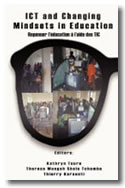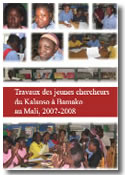Crafting Effective Strategies April 25, 2016
The A. Philip Randolph awards were distributed on April 15, 2016, at the Bruce R. Watkins Cultural Heritage Center and Museum in Kansas City, USA. At the awards ceremony, Patricia Jones, president of the Kansas City chapter of the A. Philip Randolph Institute, related stories about the pioneering labor organizer. In the 1920s and 1930s, Randolph helped organize America’s porters and maids working on the Pullman railroad cars and created the first African-American-led labor union. Several of the awards this year were made to churches in the Kansas City area that provided meeting spaces for labor organizers.
 In visiting the museum exhibit on the Pullman porters after the ceremony, I learned how this labor movement and the organizers behind it inspired Martin Luther King Jr. According to Melinda Chateauvert, author of Marching Together: Women of the Brotherhood of Sleeping Car Porters, “Female unionists and male union leaders expressed their labor protests in terms of race discrimination and in the language of black manhood rights. This rhetorical emphasis deflected members’ awareness of gender inequality, allowing them to focus their attention on gender compatibility.” Many Pullman maids and wives, daughters, and sisters of Pullman porters were members of the Ladies Auxiliary which shaped “public debates over black manhood and unionization, setting political agendas for the black community, and crafting effective strategies to win racial and economic justice.”
In visiting the museum exhibit on the Pullman porters after the ceremony, I learned how this labor movement and the organizers behind it inspired Martin Luther King Jr. According to Melinda Chateauvert, author of Marching Together: Women of the Brotherhood of Sleeping Car Porters, “Female unionists and male union leaders expressed their labor protests in terms of race discrimination and in the language of black manhood rights. This rhetorical emphasis deflected members’ awareness of gender inequality, allowing them to focus their attention on gender compatibility.” Many Pullman maids and wives, daughters, and sisters of Pullman porters were members of the Ladies Auxiliary which shaped “public debates over black manhood and unionization, setting political agendas for the black community, and crafting effective strategies to win racial and economic justice.”



Leave a Reply